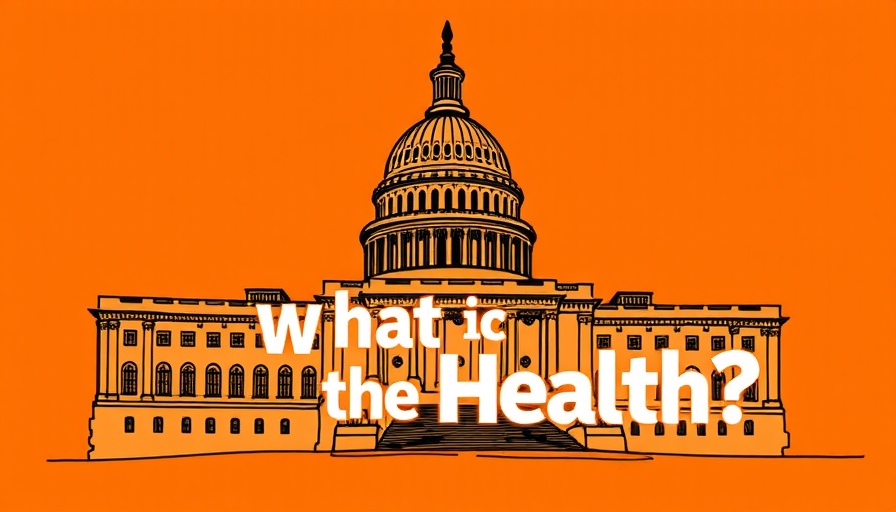
House GOP Budget Proposal Signals Major Medicaid Cuts
The recent budget proposal put forth by the House GOP threatens to significantly impact Medicaid, a crucial health program designed for low-income individuals and those with disabilities. This budget, which narrowly passed on February 25, 2025, includes provisions that could lead to cuts exceeding $880 billion from programs managed by the House Committee on Energy and Commerce, which encompasses Medicaid. Such a drastic plan raises important questions about the implications for vulnerable populations, including seniors and low-income families who rely heavily on this support.
Senate's Counterproposal Raises Concerns over Medicaid Cuts
In stark contrast to the House's ambitious cuts, the Senate is advancing its own budget proposal that does not propose cuts to health programs initially. Some Republican Senators have voiced objections, arguing that effects from potential Medicaid cuts could be politically detrimental. This contention reflects an increasing divide within the party as many members grapple with the risks of alienating constituents who rely on Medicaid, unsure if the potential benefits of tax cuts would outweigh the fallout.
A Broader Context: The Future of Medicaid
This ongoing legislative tension comes against a backdrop of not just budgetary concerns, but also a shifting landscape of health policy under the Trump administration’s influence, particularly amidst ongoing Supreme Court deliberations regarding Medicaid funding. Critics argue that if implemented, these budget cuts would disproportionately harm low-income communities, undermining healthcare access for millions. Furthermore, historical instances indicate that Republican efforts to cut Medicaid often face backlash from constituents, complicating the party’s agenda in future elections.
Potential Impacts: Who Stands to Lose?
With over 72 million Americans relying on Medicaid for their health coverage, cuts could reverberate through countless communities. Concerns range from increased healthcare costs for vulnerable populations to the strain on state budgets accounted for various health programs. Moreover, the narrative surrounding these proposed cuts often depicts a prioritization of tax benefits for the wealthy over essential services for the underprivileged, intensifying public scrutiny and dissatisfaction.
Staying Informed: What Can Readers Do?
The evolution of this budget plan will undoubtedly impact healthcare access for millions and shape the socio-political landscape moving forward. For health-conscious individuals and advocates concerned about the future of Medicaid, staying informed and voicing opinions will be crucial in influencing legislative outcomes. Engaging with local representatives and supporting initiatives aimed at protecting vulnerable communities can help foster a comprehensive and equitable healthcare system for all.
As this pivotal moment unfolds, understanding the nuances surrounding Medicaid funding and the broader ramifications of budgetary decisions is imperative. For those invested in health policy and community welfare, awareness and advocacy may help mitigate adverse effects on critical health services.
 Add Row
Add Row  Add
Add 


 Add Row
Add Row  Add
Add 



Write A Comment